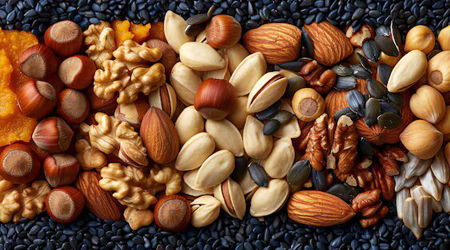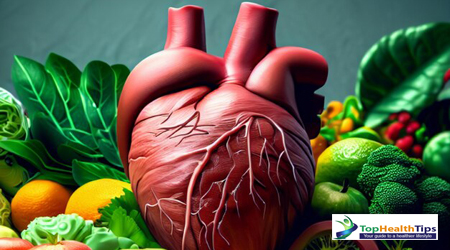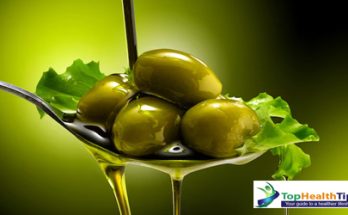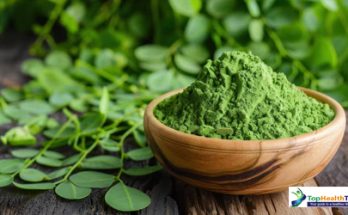Atherosclerosis, a leading cause of cardiovascular diseases, occurs when fatty deposits, or plaques, accumulate on the artery walls. This process restricts blood flow and can lead to heart attacks, strokes, or peripheral artery disease. One of the most effective ways to manage atherosclerosis is through diet. Numerous studies link dietary habits to the development or prevention of plaque buildup in the arteries. Here, we explore scientifically backed dietary recommendations to prevent or slow down atherosclerosis progression.
The Science Behind Atherosclerosis and Diet
Atherosclerosis develops from a combination of factors including high cholesterol, inflammation, and oxidative stress. Diet plays a critical role in these processes. Consuming high amounts of saturated and trans fats increases low-density lipoprotein (LDL) cholesterol, which contributes to plaque formation. On the other hand, certain foods can reduce cholesterol levels, inflammation, and oxidative stress, providing a protective effect on the arteries.



Foods to Eat for Atherosclerosis Prevention
1. Fruits and Vegetables
Fruits and vegetables are rich in antioxidants, fiber, and phytochemicals, which help lower LDL cholesterol and reduce inflammation.
- Berries: A 2010 study published in Nutrition Research found that regular consumption of berries improves endothelial function and reduces inflammation, both of which play critical roles in preventing atherosclerosis.
- Leafy Greens: Vegetables like spinach and kale are packed with lutein and fiber. Research in the American Journal of Clinical Nutrition shows that lutein from leafy greens can reduce the formation of arterial plaques.
- Citrus Fruits: Oranges and grapefruits contain flavonoids, compounds known to reduce blood cholesterol levels and improve arterial flexibility.
2. Whole Grains
Whole grains such as oats, barley, and brown rice are rich in soluble fiber, which helps reduce LDL cholesterol. A study in the Journal of Nutrition demonstrated that individuals who ate whole grains had a significantly lower risk of atherosclerosis compared to those who ate refined grains.
- Oats: Rich in beta-glucan, oats can lower LDL cholesterol by 5-10% with regular consumption.
- Barley: A 2004 study in Arteriosclerosis, Thrombosis, and Vascular Biology found that barley consumption improved cholesterol levels and reduced the risk of coronary artery disease.
3. Healthy Fats
Not all fats are bad for you. In fact, unsaturated fats can improve cholesterol levels and reduce inflammation, helping to prevent plaque buildup.
- Olive Oil: The Mediterranean diet, rich in olive oil, has been linked to reduced cardiovascular risk. A study in The New England Journal of Medicine found that participants following a Mediterranean diet with extra virgin olive oil had a 30% reduced risk of major cardiovascular events.
- Fatty Fish: Salmon, mackerel, and sardines are high in omega-3 fatty acids. Omega-3s reduce triglycerides and inflammation, two key drivers of atherosclerosis. A 2012 meta-analysis published in JAMA showed that omega-3 supplementation reduced the risk of heart attacks by 9%.
4. Nuts and Seeds
Nuts like almonds and walnuts are rich in polyunsaturated fats, fiber, and plant sterols, which help reduce LDL cholesterol and improve overall heart health.
- Almonds: Research published in Circulation found that consuming 1-2 ounces of almonds daily reduced LDL cholesterol by approximately 5%.
- Flaxseeds: Rich in omega-3 fatty acids and lignans, flaxseeds can help reduce inflammation and lower blood pressure, as noted in a 2013 study in Hypertension.
5. Legumes
Beans, lentils, and peas are excellent sources of plant-based protein and fiber, which can improve cholesterol levels and reduce plaque buildup. Studies, such as one in The Journal of Nutrition, have shown that legume consumption is associated with a 22% lower risk of coronary artery disease.



Foods to Avoid for Atherosclerosis Prevention
1. Trans Fats
Trans fats are artificial fats that increase LDL cholesterol while lowering HDL cholesterol (the “good” cholesterol), making them highly atherogenic. According to research in The New England Journal of Medicine, trans fats are directly linked to a higher risk of cardiovascular diseases.
- Avoid: Processed snacks, fried foods, and margarine.
2. Saturated Fats
Saturated fats, mainly found in animal products, contribute to higher cholesterol levels and promote plaque formation. Reducing saturated fat intake lowers LDL cholesterol, as confirmed by the American Heart Association.
- Limit: Red meats, full-fat dairy products, and butter.
3. Refined Carbohydrates
Refined carbs such as white bread and pastries cause rapid spikes in blood sugar, contributing to insulin resistance, obesity, and inflammation—all of which accelerate atherosclerosis. A 2010 study in Diabetes Care linked high refined carbohydrate intake with an increased risk of cardiovascular disease.
- Limit: White bread, pasta, and sugary snacks.
4. Sugary Foods and Beverages
Excessive sugar consumption contributes to higher triglyceride levels, weight gain, and insulin resistance. According to research in the Journal of the American Heart Association, sugary drinks and snacks increase the risk of atherosclerosis and related conditions.
- Avoid: Sugary sodas, candies, and processed desserts.
5. Excess Salt
High salt intake is linked to hypertension, a major risk factor for atherosclerosis. A study in The Lancet showed that reducing salt intake by even a small amount can significantly lower blood pressure, reducing arterial damage.
- Avoid: Processed foods, canned soups, and salty snacks.
How Hydration Supports Heart Health
Staying hydrated plays an important role in cardiovascular health. Proper hydration helps maintain blood viscosity, making it easier for your heart to pump blood and reduce strain on your arteries. A 2015 study in Nutrition Reviews suggests that dehydration can contribute to blood clot formation, which exacerbates atherosclerosis.
The Role of the Mediterranean Diet
The Mediterranean diet is one of the most well-researched diets for heart health and prevention of atherosclerosis. It emphasizes the consumption of plant-based foods, healthy fats, and lean proteins like fish, which help lower cholesterol, reduce inflammation, and improve overall arterial health. A study published in PLOS Medicine concluded that individuals following a Mediterranean diet had a 72% reduced risk of heart disease compared to those on a typical Western diet.
Conclusion
A diet rich in whole foods, healthy fats, and fiber, while avoiding trans fats, refined carbs, and excess sugars, can significantly reduce your risk of atherosclerosis. Backed by scientific evidence, these dietary changes promote better cholesterol levels, lower inflammation, and help maintain healthy arteries. By incorporating these guidelines into your daily life, you can take meaningful steps toward preventing atherosclerosis and maintaining long-term heart health.
Related post for Nutrition & Food
References:
- Libby P. Inflammation in atherosclerosis. Nature. 2002;420(6917):868-874. doi:10.1038/nature01323.
- Estruch R, Ros E, Salas-Salvadó J, et al. Primary Prevention of Cardiovascular Disease with a Mediterranean Diet. N Engl J Med. 2013;368:1279-1290. doi:10.1056/NEJMoa1200303.
- Mozaffarian D, Micha R, Wallace S. Effects on coronary heart disease of increasing polyunsaturated fat in place of saturated fat: a systematic review and meta-analysis of randomized controlled trials. PLoS Med. 2010;7(3).
- Harris WS, Mozaffarian D, Rimm E, et al. Omega-6 fatty acids and risk for cardiovascular disease. Circulation. 2009;119(6):902-907.
- Sofi F, Abbate R, Gensini GF, Casini A. Accruing evidence on benefits of adherence to the Mediterranean diet on health: an updated systematic review and meta-analysis. Am J Clin Nutr. 2010;92(5):1189-1196.
By following a scientifically supported diet, you can help prevent atherosclerosis and improve your heart health.




